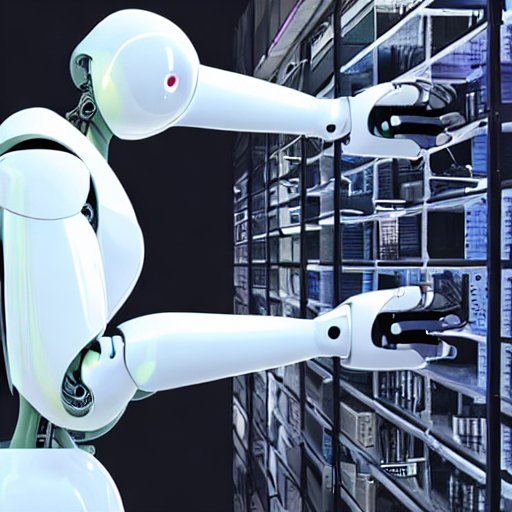1 year ago
Proper Use of AI in the Modern Day Workplace Introduction:

Artificial Intelligence (AI) has significantly transformed the modern workplace in recent years by automating repetitive tasks, enhancing decision-making processes, and improving overall productivity. However, with great power comes great responsibility; ensuring the proper use of AI is crucial for maximizing its effectiveness and avoiding improper use. This article will discuss the how, when, and when not to use AI in the workplace, as well as guidelines for effective use to ensure optimal results.
How to Use AI in the Workplace:
1. Automate mundane and repetitive tasks: AI can efficiently handle time-consuming tasks such as data entry, appointment scheduling, and document organization, freeing up employees to focus on more strategic and creative work.
2. Enhance decision-making: AI-powered analytics and predictive tools can provide valuable insights for decision-making, enabling businesses to make more informed and data-driven decisions.
3. Improve customer service: AI-powered chatbots and virtual assistants can effectively handle customer inquiries, providing quick and accurate responses 24/7, while human workers can focus on more complex customer issues.
4. Enhance employee training and development: AI can personalize employee training programs, identifying areas for improvement, and providing targeted guidance to help employees develop their skills.
5. Streamline human resources processes: AI can help HR departments in recruiting and hiring by analyzing candidate data, predicting potential success, and automating interview scheduling, among other tasks.
When to Use AI in the Workplace:
1. When tasks are repetitive, time-consuming, and prone to human error: AI can significantly reduce the possibility of mistakes and save time by automating these tasks.
2. When data analysis is required: AI-powered tools are capable of processing and analyzing large volumes of data quickly and efficiently, providing valuable insights and enabling better decision-making.
3. When customer support needs to be available 24/7: AI-driven chatbots and virtual assistants can handle customer inquiries outside of business hours, ensuring continuous support.
4. When employee training and development need to be personalized: AI can help create tailored learning plans to meet individual needs, ensuring more effective skill development.
When Not to Use AI in the Workplace:
1. When tasks require human empathy and understanding: While AI is excellent at processing data, it lacks the emotional intelligence that human workers possess. Tasks requiring empathy, emotional understanding, or creativity are better suited for human employees.
2. When the cost of implementing AI outweighs the potential benefits: Although AI can offer significant advantages, the initial investment can be expensive. Businesses must carefully consider the cost-benefit analysis before implementing AI solutions.
3. When the technology is not yet advanced enough: AI technology is constantly evolving, and in some cases, it may not yet be sophisticated enough to effectively handle certain tasks. It's essential to stay informed about the latest advancements to ensure AI solutions are up to the task.
Effective Use of AI in the Workplace:
1. Combine AI with human expertise: The most effective use of AI involves collaboration between AI and human workers. This enables businesses to capitalize on the strengths of both AI (efficiency, data processing) and human workers (creativity, empathy).
2. Continuously monitor and evaluate AI performance: Regularly assessing AI performance will help businesses identify areas for improvement and ensure that the technology is meeting desired objectives.
3. Invest in employee training and education: As AI continues to gain prominence in the workplace, it's essential for employees to understand its capabilities and limitations. Investing in training and education will ensure that employees can effectively collaborate with AI technology.
4. Prioritize data security and privacy: With AI's reliance on data, businesses must put strong measures in place to protect sensitive information and maintain privacy.
Conclusion: The proper use of AI in the modern workplace can result in significant benefits, including increased efficiency, better decision-making, and improved customer service. By understanding how, when, and when not to use AI, organizations can maximize the effectiveness of this transformative technology. Ultimately, the key to success lies in striking the right balance between AI and human expertise and continuously monitoring and refining AI performance to ensure optimal results.